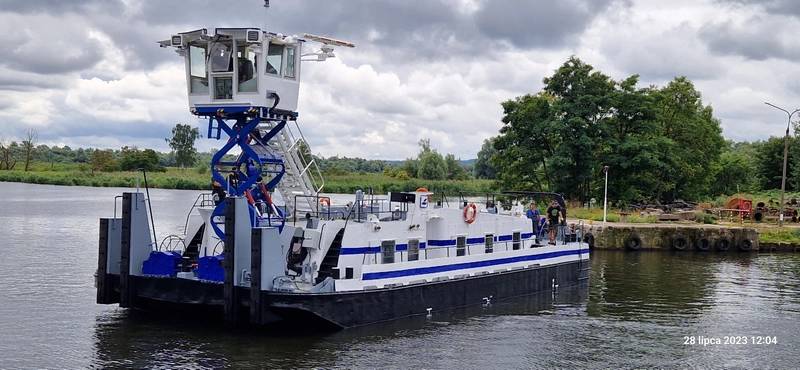Rhenus Upgrades Engines on Two Pushboats
The Rhenus Group announced it has upgraded two canal push boats operated by Deutsche Binnenreederei (DBR) with new stage V engines.
While the new construction of more sustainable hydrogen-powered vessels is a long-term project, the Rhenus Group is retrofitting its older vessels with modern and therefore more environmentally-friendly technology in the short term. The two canal push boats, RSPSB146 and RSPSB153, which were built in 1978 and 1979 respectively, are the first to undergo this process.

It has taken about ten months to convert the two vessels. The old engines have been replaced with modern diesel generators manufactured by SCANIA and Caterpillar – they are truck engines, which are also certified for use on board inland waterway vessels. They operate with stage 5 exhaust gas treatment and ensure that particles, which damage the environment, are no longer able to make their way into the air. This means that Rhenus is achieving a reduction in pollution caused by particulate matter of as much as 40%. The engines have a rating of 740 kW, which represents a tripling of the performance of the former units. The engine room has been completely gutted and refurbished to create space for the significantly larger engines. All the old pumps, electronic equipment and subassemblies have given way to the latest electronics and a modern control cabinet. The new engine is encapsulated in a Silence Pack enclosure and operates very quietly, so that the crew on board can rest at night. A new power train with thrust bearings and shaft seals has been added and the rudder hydraulics has been thoroughly updated. The two vessels will continue to operate on the eastern German inland waterways.
Thomas Kaulbach, the Managing Director of Rhenus PartnerShip, said, “Most of the vessels operated by German inland waterway companies are between 30 and 50 years old. This applies to ours too. Scrapping them makes absolutely no sense at all, particularly as it is so simple to refit them in a suitable manner. That’s exactly what we’re seeking to do with our program entitled German inland waterway shipping – evolving for the future.”
Earlier this year, Rhenus presented the first flagships of a new, low-emission fleet generation to provide sustainable inland waterway shipping in future. The push-barge combinations operate with a hydrogen-powered drive train and electric batteries, even if there is a strong current.
Rhenus is also continuing to develop its short-sea fleet. Rhenus and Arkon Shipping have jointly designed five new vessels for transporting goods near coastlines.
Related News

